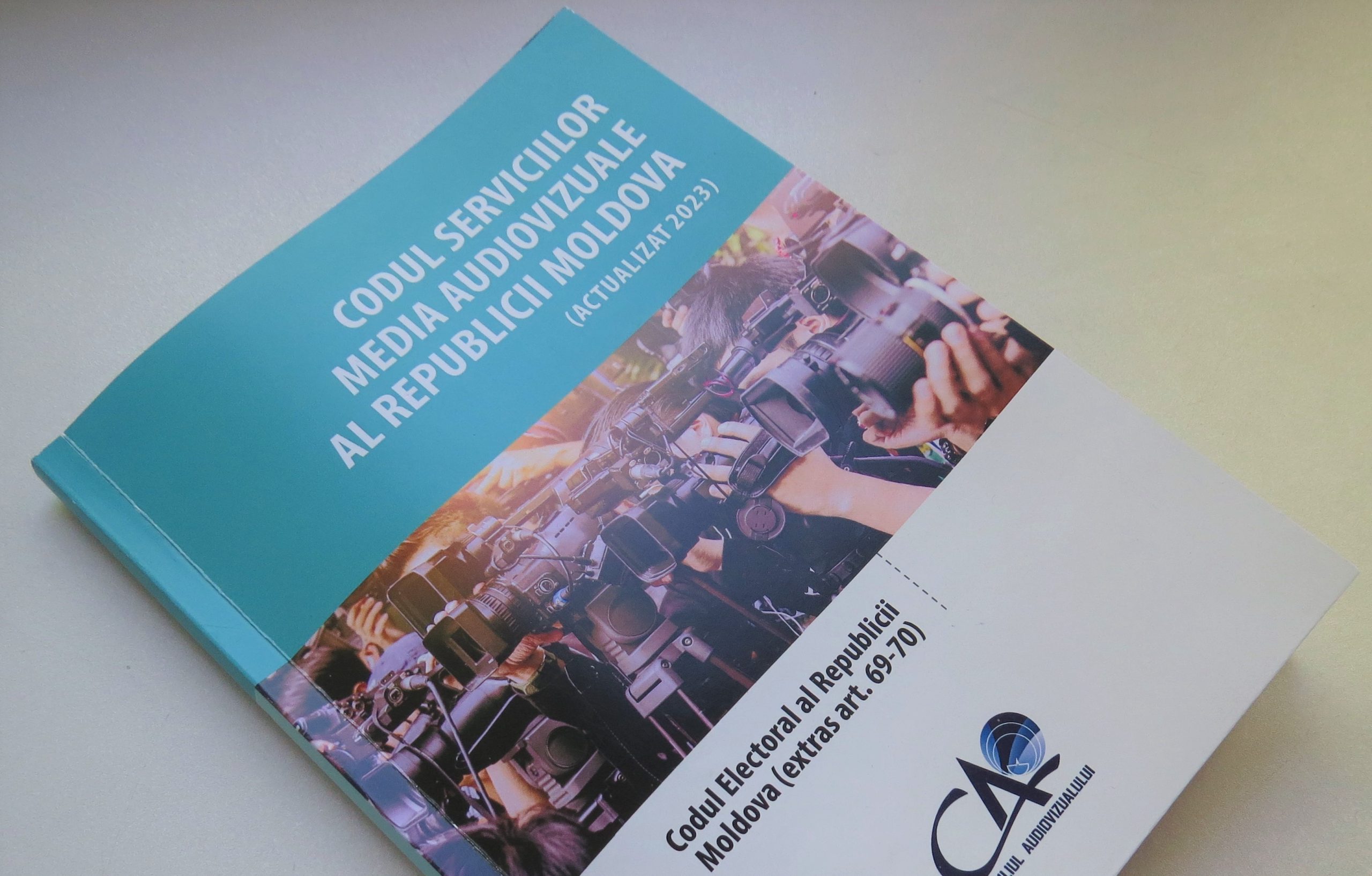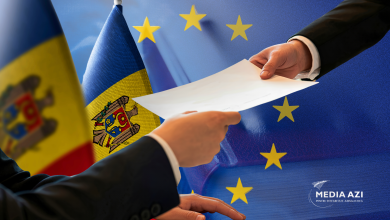Report: Disinformation Is Imperfectly Defined in the Audiovisual Legislation. Ion Bunduchi: Ideal Legal Definitions Are Exceptions
Felicia Nedzelschi

The definition of disinformation provided in the Code of Audiovisual Media Services should be revised, according to the report prepared by Freedom House in cooperation with media law and policy expert Deirdre Kevin. This conclusion was published a year after the definition had already been modified. According to the specialist, it is too broad, and domestic legislation should also stipulate the issues which do not represent disinformation. Ion Bunduchi, Executive Director of the Electronic Media Association (APEL), contacted by Media Azi, says that a better definition of disinformation results from having a better concept of the phenomenon itself.
CONCLUSIONS FROM THE FREEDOM HOUSE REPORT
Currently, disinformation is defined as “intentionally spreading information of verifiable fake or misleading nature which is likely to endanger national security in the public space by using any means.”
The current definition was adopted in August 2023. Half a year later, Freedom House prepared a report which lists a series of gaps in the Moldovan audiovisual legislation, including those concerning disinformation. For instance, Deirdre Kevin considers that the current definition is too broad, and the fines are disproportionately enormous.
In the study, she affirms that domestic legislation requires clear definitions in order to distinguish between the following issues:
- disinformation, which is intentional and threatens the state integrity or public security;
- other forms of “disinformation” which can be harmful but are supposed to be approached in the manner recommended by the international organizations;
- “correct information”: the definition of misinformation has to be revised to make it absolutely clear what should not be regarded as “disinformation” according to this law.
IN SEARCH OF A PERFECT DEFINITION
Ion Bunduchi, APEL Executive Director, emphasizes that “nowadays, there is no universally valid legal definition” of disinformation, and “we still have to search for it.” “It will be a complicated search, especially due to the fact that we have to deal with such a notion as disinformation, which is intangible but still can turn society and the whole world upside down. Before trying to counter disinformation, we certainly have to comprehend what this disaster actually looks like, because you cannot find a thing unless you know what it looks like. In fact, the problems start from this very moment,” Bunduchi says.
The media expert considers we could borrow the definition coordinated by the EU, but still believes that it will not bring any tangible changes. “Ideal legal definitions are exceptions rather than a rule. On the other hand, it should be noted that, according to the EU definition, public detriment includes threats to democratic processes. This is where we have to think: what do democratic processes imply? Does an exhaustive list of these processes exist? Is informational manipulation of the electorate a threat to any democratic process? In other words, such a phrase as ‘threats to democratic processes’ can be interpreted in a broader way than ‘information which can endanger national security.’ The same thing can be said about public goods: there any other items besides health, safety, and environment, or is this list complete? Therefore, we should conclude from the study that the legal definition needs to be improved as we get a better understanding of disinformation, as well as other definitions the study refers to. Mechanically borrowing definitions of notions we do not understand clearly enough will not add any practical value to the legislation,” Ion Bunduchi considers.
On the other hand, Liliana Nicolaescu-Onofrei, President of the Parliamentary Commission for the Media, believes that the current definition “is suitable, and decisions regarding fines can be made.”
“In its current phrasing, the definition allows analyzing certain aspects which can be tested and examined. The new definition allows seeing very clearly whether there was an intention (editor’s note: to misinform) or not and whether a certain information threatens state security. It can be seen very clearly, and it allows providing argumentation,” the deputy considers.
FINES FOR DISINFORMATION
Three months ago, following a control, the Broadcasting Council (BC) detected a series of fakes and toxic narratives and, for the first time, fined Gagauziya Radio Televizionu (GRT), the regional public provider from Gagauzia, 60000 lei for disinformation.
Currently, the legislation provides for fines from 40000 to 100000 lei for channels which broadcast content qualified as disinformation, and for eventually suspending the broadcasting license for no more than 7 days if fines have been previously applied, gradually.
Meanwhile, a month ago, GRT disputed the sanctioning decision at the court. Ion Bunduchi considers that the BC made a correct decision, but the outcomes of the process is still unknown. “I believe that the BC proceeded according to the provisions and acted with utmost caution. This decision was based not on the BC members’ suspicions, but on the analysis and arguments which resulted in an unequivocal conclusion. I would not try to guess how an eventual lawsuit would end, especially considering the lack of precedents, the novelty of the phenomenon, and the objective insufficiency of skills in examining such cases,” he says.
In the study, Deirdre Kevin points out that the fines for disinformation are too large and similar to those for spreading child pornography or inciting racial hatred or xenophobia.
In his turn, Ion Bunduchi says that the sanctions in this case need to be “discouragingly high, similar to those applied for illegal content.” “If misinformation is what I understand it is, its prospective harm could rival that resulting from child pornography, racial hatred, or calls for terrorist attacks. Still, the amount of the fine is probably not that essential, because we always have a choice: should we break or respect the law?” Bunduchi explains.



